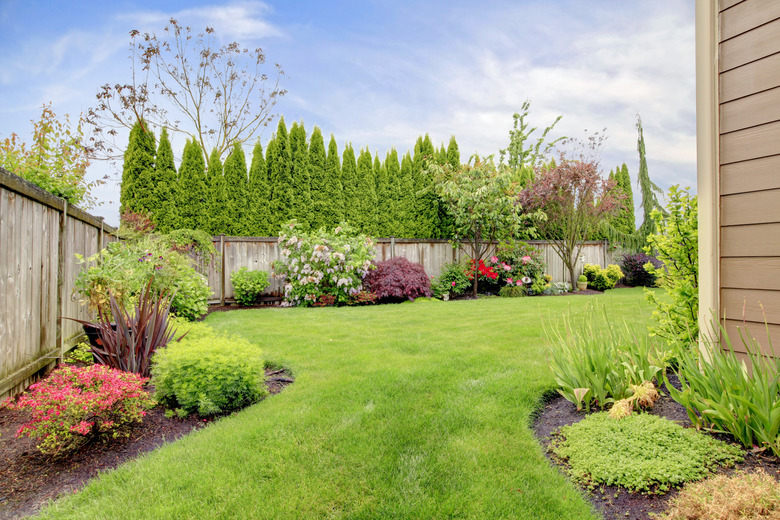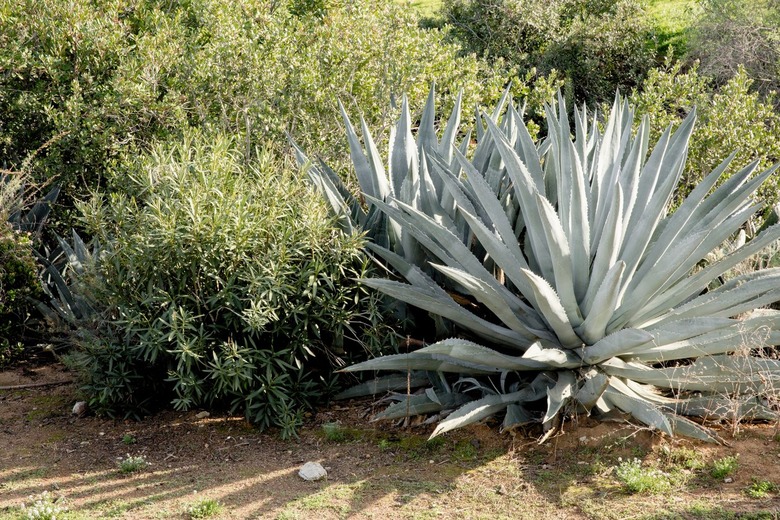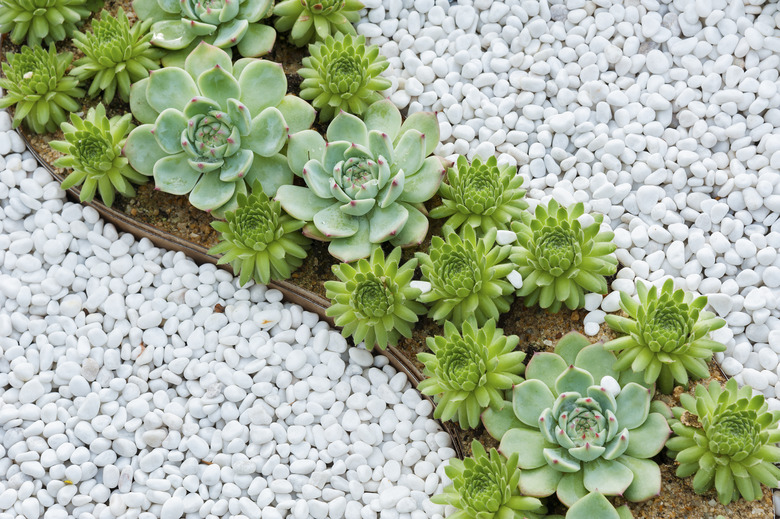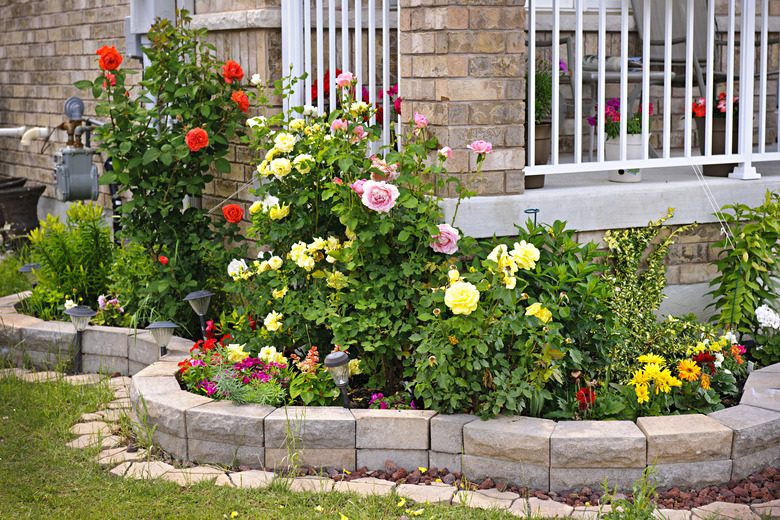I'm A Horticulturist. These Are My 10 Favorite Gardening Resources
Even horticulturists and botanists have their favorite go-to gardening resources, which we use to look up plant-specific and horticultural-related questions and updates. The books in their gardening library serve as references, but they also rely on the wealth of reputable information at their fingertips from online gardening resources.
With an emphasis on "reputable," green-industry professionals know how to pick and choose among the seemingly endless number of results that are returned by online searches for research-backed answers to their questions. Even though you're a backyard grower, you can also use some of these same reputable online gardening resources to help answer questions you have about your garden.
1. Missouri Botanical Garden
Regardless of where your garden is located, the Missouri Botanical Garden offers a wealth of information at your fingertips through its online plant finder. You can search by a plant's common or scientific name to find detailed information about any of the 7,500 plants in this database, and you can even narrow your search by entering specifics such as plant type, growing zone, sun and water needs, size, color, and bloom time. After you click through the search results to find a particular plant, you'll find a wealth of information about that specific plant. If you've ever wondered how to pronounce a plant's scientific name, click the audio icon just to the right of the plant's name to hear the correct pronunciation.
2. USDA Plant Database
The United States Department of Agriculture Natural Resources Conservation Service (USDA NRCS) offers a searchable plants database. Although you'll find general information about specific plants, such as their characteristics and distribution, you'll also be able to view and download fact sheets and plant guides (in PDF as well as .doc format) for each plant. After you've clicked through the search results to find a specific plant, look at the tabs just above the plant name. You'll not only be able to view pictures under the "Images" tab but you'll also discover if a plant is threatened or endangered or whether it's on any noxious weed lists by state by clicking the "Legal Status" tab.
3. American Horticultural Society
The American Horticultural Society (AHS) has a members-only website for subscribers, but it also offers lots of free gardening tips and how-to articles that cover a variety of topics for nonsubscribers. Novice and expert gardeners alike can learn how to plant gardens for pollinators, how to create container gardens, how to learn the basics of composting and how to master other projects simply by searching topics under the "Resources" tab at the top of the home page or by clicking "Gardening Resources" at the bottom of the home page. If you click "Master Gardeners" under the "Resources" tab, you'll be able to search for your local cooperative extension office by clicking on the U.S. state map.
4. Utah State University Extension
If you'd like to grow your own food, Utah State University Extension has a downloadable gardening resources guide that offers advice on vegetable gardening. From apricots to watermelons, this 218-page book (in PDF format) contains 58 fact sheets for commonly grown vegetables, fruits and herbs. Whether you want to have a dedicated vegetable garden or incorporate veggies into an edible landscaping project, this book has detailed information and specific instructions to eliminate the guesswork even for beginning gardeners. The book also notes which crops grow best in raised beds and which crops are suitable for container gardening.
5. Cal Poly Urban Forest Ecosystems Institute
One of the best online gardening resources for trees is SelecTree, a tree selection guide published by Cal Poly Urban Forest Ecosystems Institute (UFEI). To learn about a certain tree, you can search by its common name or scientific name. Details about each tree include its hardiness range, characteristics, cultural needs, pests and disease information, mature size, and even its annual growth rate. Photos are also included, with individual leaves pictured as well as a close-up of the bark color and patterns, fall leaf color (if it's a deciduous tree) and flowers and fruit (if it's a flowering tree).
6. North American Native Plant Society
With a mission to preserve native plant habitats and restore indigenous flora, the North American Native Plant Society encourages gardeners to incorporate native plants in their landscape design and gives them gardening tips for how to start. Look under the "Growing Native Plants" tab at the top of the page and go to the "Native Plant Database." Here, you'll find an alphabetical listing of native plants with photos and details. You can sort this list by plant type, habitat and light and soil moisture requirements. By default, the list is sorted by scientific name, but you can sort the list by common name to make quicker work of scrolling to find the plant you want.
7. University of Georgia Extension
Not all gardeners enjoy working outdoors, which may be the reason for many dedicated houseplant growers. Among numerous online gardening resources offered by the University of Georgia Extension, its guide for growing houseplants, "Growing Indoor Plants with Success," offers advice for these indoor gardeners. This downloadable houseplant guide (in PDF format) offers comprehensive instruction for indoor gardening, with topics that include proper light, temperature, humidity, water, and fertilizer requirements. It also includes "recipes" for making potting mixes for different types of houseplants and guidelines for how to control pests. You'll find a chart in Table 3 of common houseplants and the cultural requirements of each one.
8. Gardening Resources for Plant Societies
From avid plant collectors to gardeners who simply want to learn more about a specific group of plants, plant societies can meet this need. For example, visit the American Orchid Society online to learn more about these exotic plants, or look to the African Violet Society of America for tips on how to grow these beloved flowering houseplants. Among other learning modules on its website, the American Rose Society posts previously recorded webinars for visitors to watch. To learn about care and maintenance for hydrangeas, visit the American Hydrangea Society. If you hover over the "Education" tab on the American Hosta Society website, you'll see numerous free gardening resources.
9. University of California Integrated Pest Management Program
Knowing how to identify plant pests and disease symptoms and then trying to figure out the proper pest control methods for these problems trips up many gardeners. Even weeds are considered garden pests, but many gardeners don't know how to identify the weeds in their landscape, which means they don't know which weed-control methods are effective. The University of California Integrated Pest Management Program makes it easy to identify pests and learn how to control them. Select the "Identify & Manage Pests" tab from the UC IPM website and choose "Weed Gallery" to see a clickable menu of photos for common weeds, or choose "Home, Garden, Turf, & Landscape Pests" to walk through the steps to identify what's eating your favorite plant.
10. Horticultural Myths
Whether you're a new gardener or you've been gardening for a number of years, don't fall for everything you hear or read without checking for substance behind the anecdote; otherwise, you could actually harm your plants instead of help them. Linda Chalker-Scott of Washington State University Extension is renowned in the gardening world for exploring and debunking common horticultural myths. Her online gardening resources library of "myths" is arranged by category, with each title linked to a PDF file. Once you start reading, you'll be hooked. Chalker-Scott provides research-based facts to support common gardening myths and to educate gardeners on proper techniques. You may want to rethink reaching for some Epsom salt to boost nutrition for your roses, tomatoes, or houseplants after reading Chalker-Scott's research.



